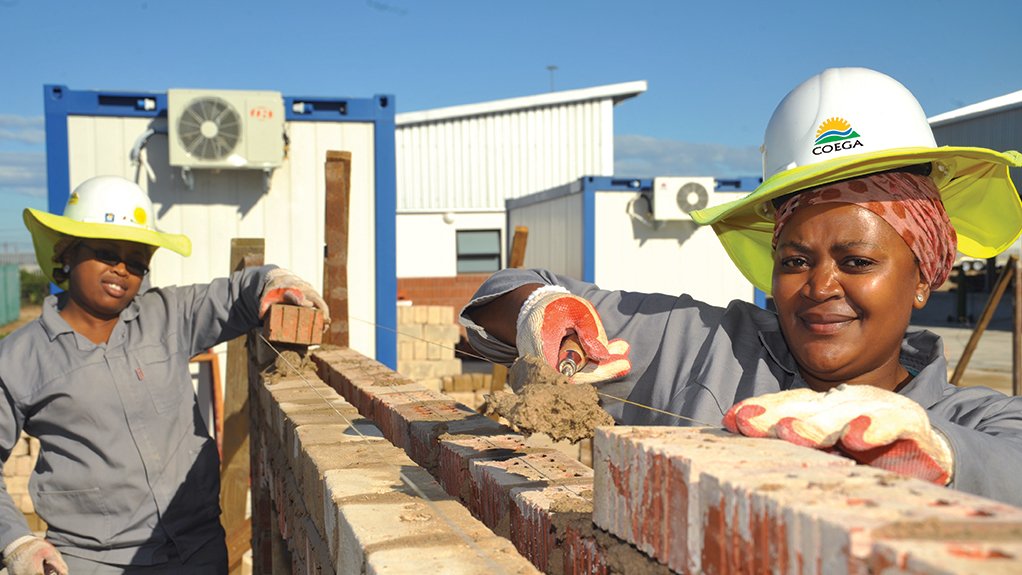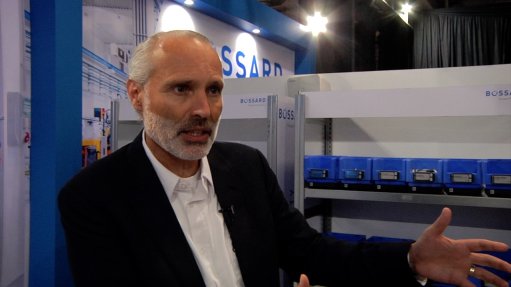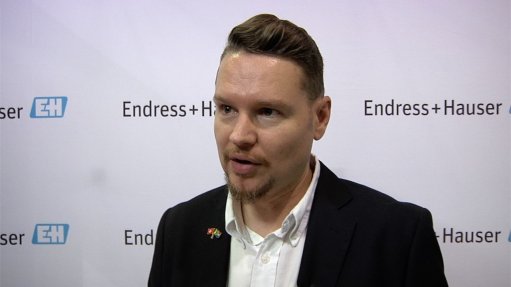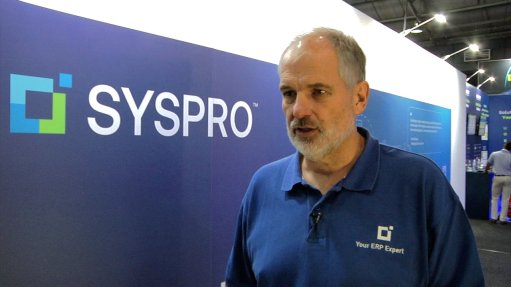Resolving SMME challenges go beyond supportive policy, TIPS Forum finds
The yearly Trade & Industry Policy Strategies (TIPS) Forum featured a discussion on the most prominent barriers to entry for small, medium-sized and microenterprises (SMMEs) as small business growth is needed for economic growth and job creation in the country.
As a first point of issue, TIPS executive director Saul Levin said the value chain of most sectors had concentration upstream, which meant the pricing of inputs was unusually high.
He cited the example of China considering the entire value chain and eliminating blockages such as expensive inputs through subsidies, which helped to unlock downstream growth.
“If we are looking at interventions, how do we look at pricing across the value chain? Stakeholders often advocate for more mineral beneficiation, for example, but the input costs are just too high,” Levin explained.
He added that government often intervened in markets through a myriad of compliance requirements and regulation, which was beneficial for businesses, however, balance was important with such a managed market. Levin said too much protection through duties, for example, could damage the cost structure of the economy.
“That is where industrial policy comes in,” Levin suggested, posing the question of what government should be doing alongside industries to make them more competitive over time, including mechanisms to lower input costs so that production processes could ultimately become more productive and create more jobs.
He also said there were barriers to SMMEs accessing information and technology from research institutions as well as the Department of Science and Innovation, owing to enterprises not knowing how to access this information or being unaware that information such as this existed.
He added that another area of concern was public institutions that had lost capacity to support enterprises owing to underfunding and mismanagement. He cited the example of the South African Bureau of Standards which could better support SMMEs from a laboratory testing perspective, where SMMEs could not afford to have in-house testing.
National Treasury microeconomic policy chief director Nomvuyo Guma agreed that the South African economy was highly concentrated in some areas, which meant fewer opportunities for SMMEs and higher barriers to entry. She added that high levels of concentration in a market often stifled investment, innovation and dynamism.
She listed competition policy as a starting point to make the economy less concentrated and open for small business activity.
Guma cited a survey by Organisation for Economic Cooperation and Development on product markets finding that South Africa ranked low on its product market environment, with the market being restrictive in terms of licensing and barriers to entry.
She also highlighted the issue of lacking data. “There is no national survey on SMMEs that is integrated into GDP data. There is definitely a conversation to be had to strengthen data capturing and creating databases that are available for researchers and policymakers.”
Guma agreed with Levin that businesses were often not aware of the seven direct support programmes for SMMEs and the 20 indirect support programmes for SMMEs offered by government on a national and provincial level – in addition to private sector support programmes.
Absa senior regional and sector specialist Kgabiso Manthata emphasised the importance of considering the subsectors that SMMEs operate in to devise interventions, as well as capacitating SMMEs to provide tangible cashflow projections.
From an accessing finance perspective, Manthata pointed out that township-based businesses often ran on tight margins and did not necessarily have literacy on cashflow management and seasonal fluctuations in demand. There was also a lack of understanding on debt maturity in relation to the lifecycle of assets.
She mentioned that more products were needed to insure SMMEs in townships, since they were at increased risk of theft, medical conditions and adverse weather. “Such products need to consider the needs of SMMEs and understand how they can be underwritten to cater for those particular markets.”
Nafasi Water Technologies research and innovation head Dr Rendani Mamphiswana said the challenges for SMMEs were different depending on whether value chains already existed or not.
“The conversation on policy is becoming specific and less generic. When we deal with new value chains, part of what industrial policy needs to consider is where the growth areas are and how they can become more inclusive.”
He stated that government had a clear intent to support local innovation system development and create an enabling environment for innovation, which included supporting SMMEs; however, the legislation supporting this development was often not implemented.
To help mitigate this gap, Mamphiswana suggested that SMMEs approach relevant universities within their area of interest to access more information, resources and technology.
As a case in point of policy not being implemented, Mozambique-based Eduardo Mondlane University Professor Angelo Macuácua said most Southern African Development Community (SADC) countries had preferential public procurement legislation in place that provided for SMME contribution; however, there were few measures to foster linkages between large firms and SMMEs in respect of goods and services to expand their market access.
He mentioned that 80% of SADC member States had preferential public procurement policies in place, but only 20% of the members had strategies in respect of linkages between firms. Additionally, only 30% of SADC countries had preferential payment terms in place for SMMEs.
Echoing the sentiment of other speakers, Macuácua also highlighted the issue of lacking data, saying there was no available information that confirmed the number of contracts awarded to SMMEs in the SADC region, nor the values thereof.
“There is a lack of statistical data on public procurement for SMMEs, which inhibits the ability of assessing whether such laws are being implemented effectively and bringing expected results.”
Macuácua suggested that the SADC Secretariat embark on a public procurement project to streamline the harmonisation of public procurement laws of the member States, particularly to include more measures to foster linkages between small and large firms, as well as garner more information on what is being implemented.
He concluded that at the level of each county, governments could establish systems for monitoring and evaluation of public procurement preference for SMMEs, out of which reports would be published.
Comments
Press Office
Announcements
What's On
Subscribe to improve your user experience...
Option 1 (equivalent of R125 a month):
Receive a weekly copy of Creamer Media's Engineering News & Mining Weekly magazine
(print copy for those in South Africa and e-magazine for those outside of South Africa)
Receive daily email newsletters
Access to full search results
Access archive of magazine back copies
Access to Projects in Progress
Access to ONE Research Report of your choice in PDF format
Option 2 (equivalent of R375 a month):
All benefits from Option 1
PLUS
Access to Creamer Media's Research Channel Africa for ALL Research Reports, in PDF format, on various industrial and mining sectors
including Electricity; Water; Energy Transition; Hydrogen; Roads, Rail and Ports; Coal; Gold; Platinum; Battery Metals; etc.
Already a subscriber?
Forgotten your password?
Receive weekly copy of Creamer Media's Engineering News & Mining Weekly magazine (print copy for those in South Africa and e-magazine for those outside of South Africa)
➕
Recieve daily email newsletters
➕
Access to full search results
➕
Access archive of magazine back copies
➕
Access to Projects in Progress
➕
Access to ONE Research Report of your choice in PDF format
RESEARCH CHANNEL AFRICA
R4500 (equivalent of R375 a month)
SUBSCRIBEAll benefits from Option 1
➕
Access to Creamer Media's Research Channel Africa for ALL Research Reports on various industrial and mining sectors, in PDF format, including on:
Electricity
➕
Water
➕
Energy Transition
➕
Hydrogen
➕
Roads, Rail and Ports
➕
Coal
➕
Gold
➕
Platinum
➕
Battery Metals
➕
etc.
Receive all benefits from Option 1 or Option 2 delivered to numerous people at your company
➕
Multiple User names and Passwords for simultaneous log-ins
➕
Intranet integration access to all in your organisation





















